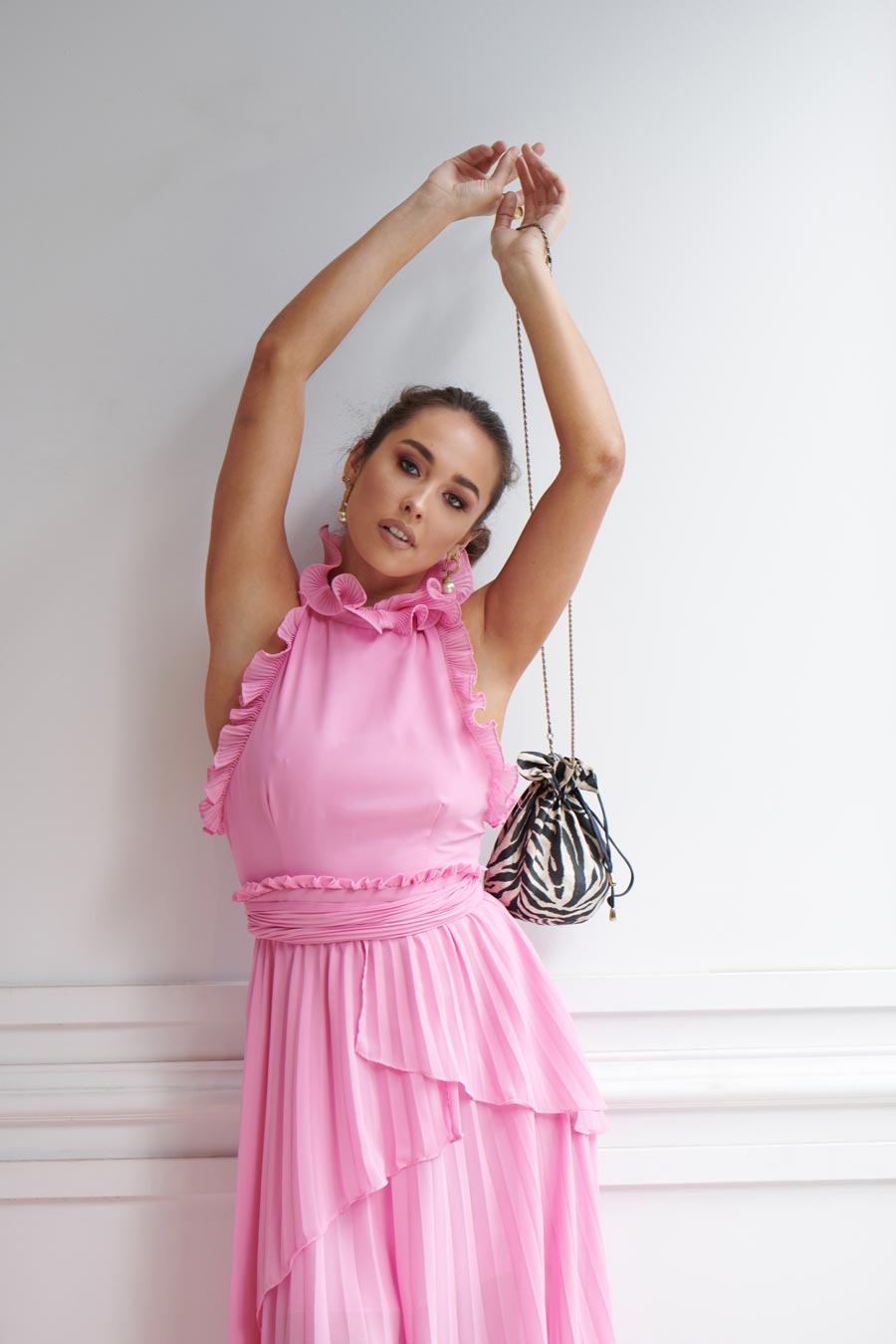Sustainability
Renting your designer occasion-wear is truly a more sustainable choice. Not only can you feel wonderful wearing the latest designer clothing, you can feel great about doing your little bit for the earth.
A lot of occasions call for a very specific outfit to fit the dress code, theme, weather or whatever it may be. If you buy your outfit, often you won't know when you'll get the opportunity to wear it again.
With social media being so much apart of our daily lives, it's almost impossible to go out to any occasion without pics being posted online. So even people in a different circle to the event you've been to have seen you in that outfit.
And how many items do you have in your closet that are no longer the right size for you?
Let's be honest, we all feel a little more special wearing something we haven't worn before!
If the above sounds familiar to you, the question is: Why buy something you'll only wear once?
The way we consumed fashion just didn't make sense, but until recently, consumers didn't have many other convenient options if they wanted to remain on-trend, stylish and wear different looks to each event.
But things have changed. There has been a push toward experiences over ownership in many areas of our lives, as well as a push toward sustainable living, and fashion is no different. These things, along with technological advances, have given the consumer far more choice, not only in what to wear, but also how they obtain that perfect outfit for their occasion (i.e. buy vs hire).
Reduced Consumption & Production
Apart from saving money and closet space, hiring your outfit reduces your consumption, which in turn reduces production.
The fashion industry is one of the smaller global industries but it is the world's second largest polluter. In fact, the fashion industry is second only to the oil industry in terms of the pollution that it creates.
The less we produce, the less we impact the environment with fossil fuels and resource exploitation. Just think about all the activities involved in getting your garment designed and produced, to it arriving at your favourite local or online store.
Less Landfill
Australia is one of the world's largest consumers of textiles per capita. We buy an average of 27kg of textiles each year and discard about 23kg. That equates to around 500,000 tonnes of textiles being dumped by Australians each year. Two-thirds of that is man-made fibres that are less likely to break down over time and are often derived from petroleum.
While we may think that donating to second hand stores solves the problem, as we're not actually throwing the clothing away ourselves, the sad truth is that only 10% of these items are sold (15% in Australia), with the rest mostly ending up in landfill.
If we own less, there's less for us to throw away, so renting rather than buying can have a big impact on the amount discarded to landfill.
The Economical, Environmental and Human Impacts of Fast Fashion
If you can't afford to buy designer clothing and you don't hire your outfit, it's likely you'll be buying your outfit from a Fast Fashion store.
Fast Fashion stores can be really cheap and they typically emphasise brief, short-lived trends over classic adaptable pieces. Because it is produced so cheaply, the concern of over-producing is not a big one for these companies.
It is usually produced in 3rd-world countries and some of these huge companies have in the past been caught out for unethical treatment of employees and local business operators. In many cases, it has resulted in death and injury of workers.
By hiring an outfit by a recognised designer, you're more likely to be wearing a piece that has had more thought put into it, produced more ethically, and of better quality.
If you're interested in reading more of the shocking statistics about our fashion consumption and the perils of fast fashion, check out our 2018 piece on the topic.
In fairness, some of these Fast Fashion companies have succumbed to public pressure and have taken steps toward more sustainable, ethical and transparent practices in recent years, which is fantastic. We hope it continues, as there's still a long way to go.

